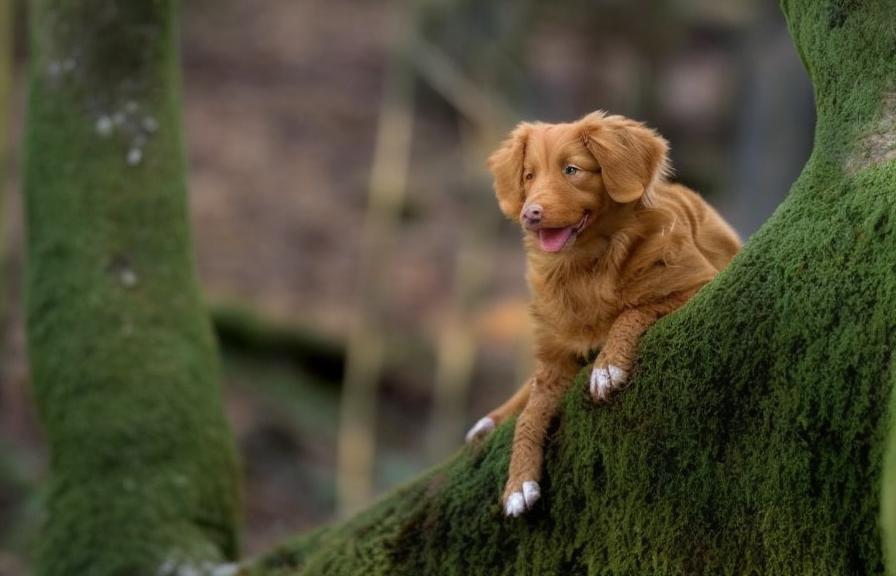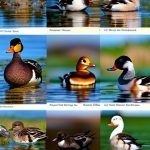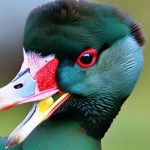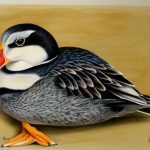The history of Duck Tolling Retrievers, also known as “Tollers,” can be traced back to the early 19th century in the region of Nova Scotia, Canada. The breed was developed by crossing various retriever breeds, such as the Golden Retriever, with smaller spaniel-type dogs to create a versatile and efficient hunting companion. The primary purpose of the Duck Tolling Retriever was to lure and retrieve waterfowl for hunters by playing and frolicking along the shoreline, hence the term “tolling.” This unique hunting technique made the Toller an invaluable asset to hunters, as their playful and energetic nature would attract the curiosity of ducks and geese, luring them within range of the hunter’s firearm.
The breed was officially recognized by the Canadian Kennel Club in 1945 and later by the American Kennel Club in 2003. Today, Duck Tolling Retrievers are not only prized for their hunting abilities but also for their intelligence, agility, and affectionate nature, making them popular companions for active families and individuals. Their rich history as a working breed has shaped their characteristics and instincts, making them an excellent choice for those looking for a versatile and loyal canine companion.
Key Takeaways
- Duck Tolling Retrievers were originally bred in the early 19th century in Nova Scotia, Canada, for luring and retrieving waterfowl.
- When choosing a Duck Toller breeder, it is important to research their reputation, breeding practices, and the health and temperament of their dogs.
- Health and genetic testing are crucial in Duck Toller breeding to ensure the puppies are free from hereditary diseases and have a good chance at a healthy life.
- Socialization and training are essential for Duck Tollers to develop into well-adjusted and obedient companions.
- Breeding ethics and standards for Duck Tollers include responsible breeding practices, proper care for the dogs, and prioritizing the health and well-being of the puppies.
- Finding a reputable Duck Toller breeder involves thorough research, visiting the breeder’s facilities, and asking for references from previous puppy buyers.
- The future of Duck Toller breeding lies in the hands of ethical breeders who prioritize the health, temperament, and overall well-being of the dogs.
Choosing the Right Duck Toller Breeder
When choosing a Duck Toller breeder, it is essential to do thorough research to ensure that you are getting a healthy and well-bred puppy. A reputable breeder will prioritize the health and well-being of their dogs and adhere to ethical breeding practices. Start by seeking recommendations from local Toller clubs or breed enthusiasts, as they can provide valuable insights and referrals to responsible breeders. Additionally, reputable breeders will be transparent about their breeding practices, health testing protocols, and the lineage of their dogs.
It is crucial to visit the breeder’s facility in person to assess the living conditions of the dogs and observe their temperament and behavior. A responsible breeder will prioritize socialization and early training for their puppies, ensuring that they are well-adjusted and prepared for life in a family environment. Furthermore, inquire about health clearances for genetic conditions such as hip dysplasia, progressive retinal atrophy, and autoimmune disorders, as these are common concerns in the Toller breed. By choosing a reputable breeder who prioritizes the health and well-being of their dogs, you can be confident that you are bringing home a happy and healthy Duck Toller puppy.
Health and Genetic Testing in Duck Toller Breeding
Health and genetic testing play a crucial role in responsible Duck Toller breeding practices. As with any purebred dog, Tollers are susceptible to certain genetic conditions that can impact their quality of life. Reputable breeders will conduct health screenings for common hereditary diseases to ensure that their breeding stock is free from genetic abnormalities. Some of the key health tests for Duck Tollers include hip and elbow evaluations to screen for hip dysplasia and elbow dysplasia, which are common orthopedic concerns in medium to large breed dogs. Additionally, eye examinations are essential to detect progressive retinal atrophy (PRA), a degenerative eye disease that can lead to blindness in affected dogs.
Furthermore, autoimmune disorders such as autoimmune thyroiditis and immune-mediated hemolytic anemia should also be screened for in breeding dogs to minimize the risk of passing on these conditions to their offspring. By prioritizing health and genetic testing in breeding programs, responsible breeders can work towards producing healthy and genetically sound Duck Tollers with a reduced risk of hereditary diseases. Prospective puppy buyers should inquire about health clearances and genetic testing conducted by the breeder to ensure that they are bringing home a puppy with a strong foundation for a healthy life.
The Importance of Socialization and Training in Duck Toller Breeding
Socialization and training are integral components of responsible Duck Toller breeding practices. Early socialization plays a crucial role in shaping a Toller’s temperament and behavior, setting the stage for a well-adjusted and confident adult dog. Reputable breeders will expose their puppies to various stimuli, environments, and experiences during the critical socialization period, which typically occurs between 3 to 14 weeks of age. This exposure helps puppies develop positive associations with new people, animals, sounds, and environments, reducing the likelihood of fearfulness or anxiety in adulthood.
In addition to socialization, early training is essential for instilling good manners and obedience in Duck Tollers. Responsible breeders will begin basic training with their puppies, teaching them foundational commands such as sit, stay, come, and leash walking. This early training sets the stage for continued learning and development in a home environment, making it easier for new owners to continue their puppy’s education. By prioritizing socialization and training in their breeding programs, responsible breeders contribute to the overall well-being and adaptability of Duck Tollers, setting them up for success in their new homes.
Breeding Ethics and Standards for Duck Tollers
Breeding ethics and standards are fundamental principles that guide responsible Duck Toller breeding practices. Ethical breeders prioritize the health, temperament, and conformation of their dogs, striving to improve the breed with each generation while maintaining its unique characteristics. They adhere to breed standards set forth by reputable kennel clubs such as the Canadian Kennel Club and the American Kennel Club, which outline the ideal physical traits and temperament for Duck Tollers. These standards serve as a benchmark for evaluating breeding stock and ensuring that they align with the breed’s purpose and function.
Furthermore, ethical breeders prioritize transparency and honesty in their breeding practices, providing potential puppy buyers with comprehensive information about their breeding program, health testing protocols, and the lineage of their dogs. They are committed to producing healthy, well-socialized puppies with sound temperaments that are suitable for various roles, including hunting companions, performance sports competitors, and beloved family pets. By upholding breeding ethics and standards, responsible breeders contribute to the preservation and betterment of the Duck Toller breed, ensuring its longevity for future generations to enjoy.
Finding a Reputable Duck Toller Breeder

Finding a reputable Duck Toller breeder requires diligence and thorough research to ensure that you are getting a healthy and well-bred puppy. Start by reaching out to local Toller clubs or breed enthusiasts for recommendations on responsible breeders in your area. These individuals can provide valuable insights into the reputability of breeders based on their knowledge of the Toller community. Additionally, attend dog shows, performance events, or hunting trials where you can meet breeders in person and observe their dogs in action.
When evaluating potential breeders, inquire about their breeding practices, health testing protocols, socialization methods, and the care provided to their dogs and puppies. A reputable breeder will be forthcoming with information about their breeding program and will prioritize the health and well-being of their dogs above all else. They will also be open to answering any questions you may have about the breed and their specific breeding practices. By taking the time to find a reputable Duck Toller breeder, you can be confident that you are bringing home a happy and healthy puppy from a responsible source.
The Future of Duck Toller Breeding
The future of Duck Toller breeding holds promise for continued advancements in health testing, genetic diversity, and responsible breeding practices. As awareness of hereditary diseases in purebred dogs grows, so does the emphasis on health testing in breeding programs. Responsible breeders will continue to prioritize health clearances for common genetic conditions while also exploring new avenues for genetic diversity within the Toller gene pool. This may involve collaboration with international breed clubs or utilizing advanced reproductive technologies to expand the genetic diversity of the breed.
Furthermore, the future of Duck Toller breeding will see an ongoing commitment to ethical breeding practices that prioritize the overall well-being of the dogs. This includes continued emphasis on early socialization and training for puppies, as well as transparent communication with prospective puppy buyers about health testing results and lineage information. By upholding these principles, responsible breeders will contribute to the preservation of the Duck Toller breed while ensuring its continued relevance as a versatile hunting companion and beloved family pet for years to come.
In conclusion, Duck Tolling Retrievers have a rich history as versatile hunting companions with an affectionate nature that makes them popular among active families. When choosing a Duck Toller breeder, it is essential to prioritize health testing protocols, socialization methods, and ethical breeding practices to ensure that you are getting a healthy and well-adjusted puppy. The future of Duck Toller breeding holds promise for continued advancements in health testing, genetic diversity, and responsible breeding practices that will contribute to the preservation of this unique and beloved breed for generations to come.
If you’re a duck toller breeder, you understand the importance of providing a comfortable and safe environment for your ducks. One crucial aspect of maintaining their well-being is ensuring they have the right living conditions. In a recent article on PoultryWizard, they discuss the importance of having a proper heater for a chicken coop, which can also be beneficial for duck housing. This article provides valuable insights into creating a warm and cozy space for your ducks during colder months. Check it out here to learn more about how to keep your ducks comfortable and healthy.
FAQs
What is a duck toller breeder?
A duck toller breeder is a person who specializes in breeding Nova Scotia Duck Tolling Retrievers, also known as “tollers.” These breeders are dedicated to producing healthy, well-tempered, and genetically sound tollers that adhere to the breed standard.
What does a duck toller breeder do?
A duck toller breeder is responsible for selecting suitable breeding pairs, caring for pregnant and nursing mothers, socializing and training puppies, and finding suitable homes for the puppies. They also ensure that their breeding dogs undergo health testing to minimize the risk of genetic diseases in their offspring.
How can I find a reputable duck toller breeder?
To find a reputable duck toller breeder, it is recommended to contact the Nova Scotia Duck Tolling Retriever Club of Canada or the breed’s national kennel club for a list of registered breeders. It’s important to do thorough research, ask for references, and visit the breeder’s facilities before making a decision.
What should I look for in a good duck toller breeder?
A good duck toller breeder should prioritize the health and well-being of their dogs, be knowledgeable about the breed, and be transparent about their breeding practices. They should also provide proper documentation of health clearances, offer support and guidance to puppy buyers, and be committed to the betterment of the breed.
Why is it important to choose a reputable duck toller breeder?
Choosing a reputable duck toller breeder is important to ensure that you are getting a healthy and well-adjusted puppy from a responsible source. Reputable breeders prioritize the welfare of their dogs and are committed to producing puppies that conform to the breed standard and have good temperaments.
Meet Walter, the feathered-friend fanatic of Florida! Nestled in the sunshine state, Walter struts through life with his feathered companions, clucking his way to happiness. With a coop that’s fancier than a five-star hotel, he’s the Don Juan of the chicken world. When he’s not teaching his hens to do the cha-cha, you’ll find him in a heated debate with his prized rooster, Sir Clucks-a-Lot. Walter’s poultry passion is no yolk; he’s the sunny-side-up guy you never knew you needed in your flock of friends!







